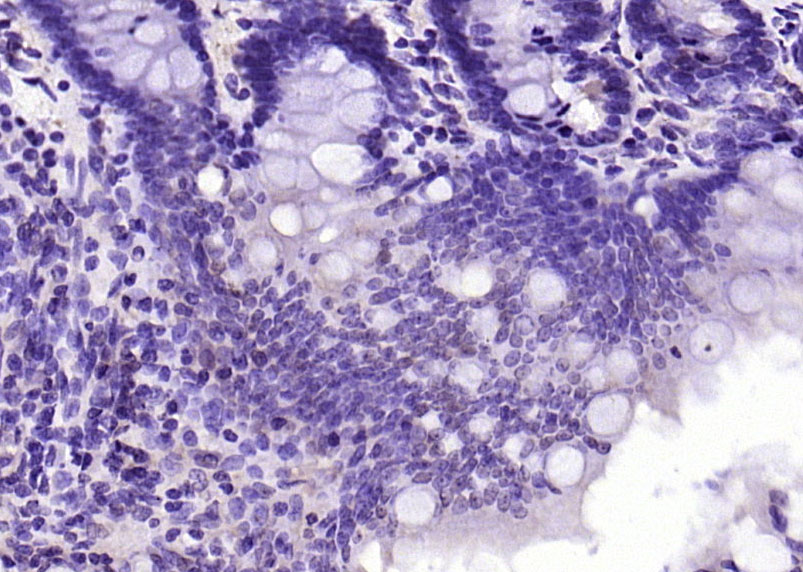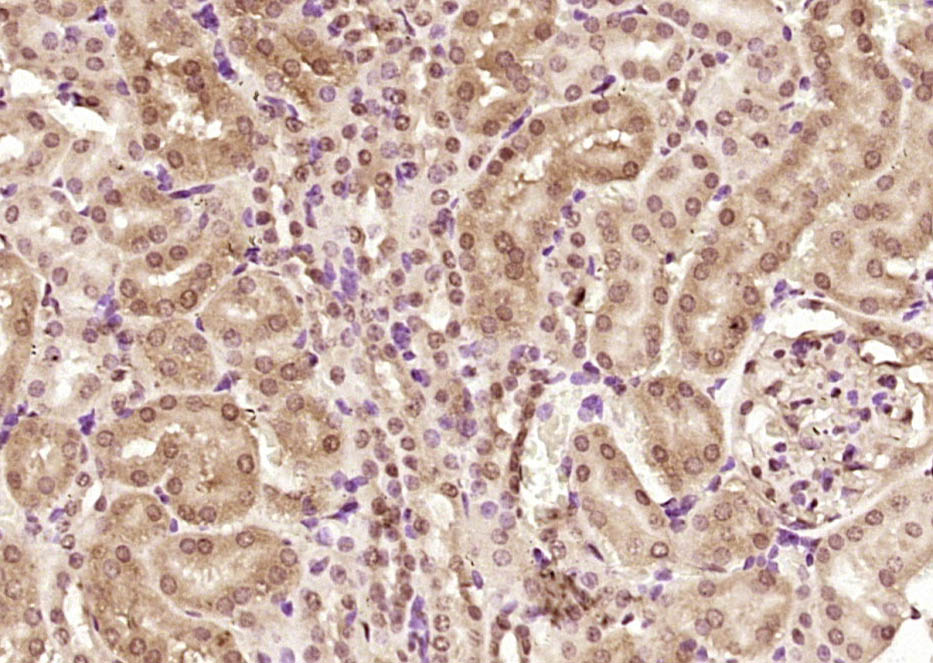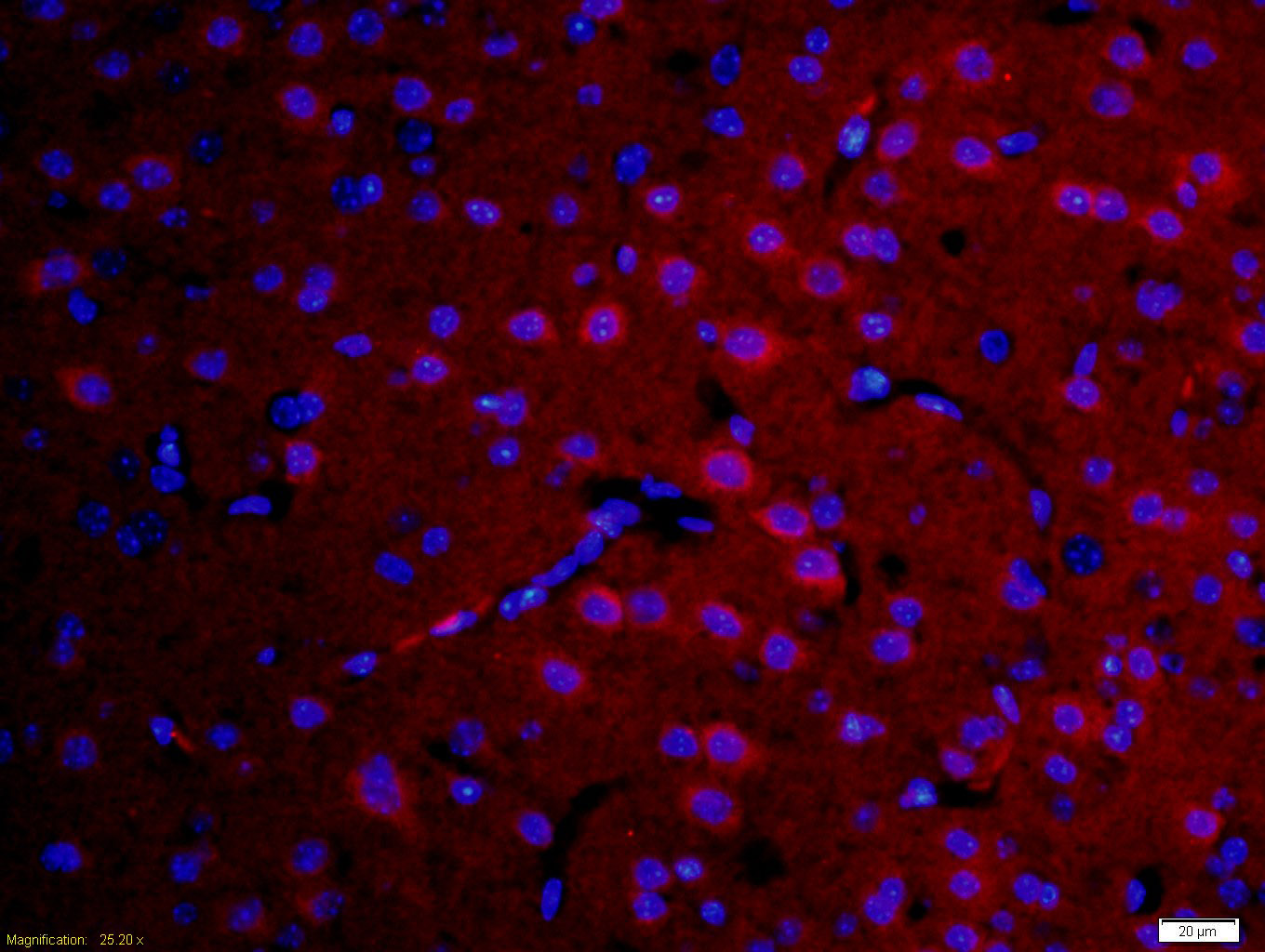
Details
| Product Name | DFFB |
| Chinese Name | Caspase 激活的脱氧核糖核酸酶抗体 |
| Alias | CAD; 5730477D02Rik; Caldesmon; Caspase activated deoxyribonuclease; Caspase activated DNase; Caspase activated nuclease; Caspase-activated deoxyribonuclease; Caspase-activated DNase; Caspase-activated nuclease; CDM; CPAN; Deoxyribonuclease III, caspase activated; DFF 40; DFF-40; DFF2; DFF40; DFFB_HUMAN; Didff; DNA fragmentation factor 40 kDa subunit; DNA fragmentation factor subunit beta; DNA fragmentation factor, 40 Da, beta polypeptide (caspase activated DNase); DNA fragmentation factor, 40 kD beta subunit; DNA fragmentation factor, 40 kD, beta polypeptide; DNA fragmentation factor, 40kDa, beta polypeptide (caspase activated DNase); DNA fragmentation factor, 40kDa, beta polypeptide (caspase-activated DNase); DNAation factor, beta subunit; OTTHUMP00000003633. |
| literatures |
Specific References (2) | SL0043R has been referenced in 2 publications.
[IF=5.076] Endesfelder Stefanie. et al. Prevention of Oxygen-Induced Inflammatory Lung Injury by Caffeine in Neonatal Rats. Oxid Med Cell Longev. 2020;2020:3840124 IHC ; Rat.
[IF=1.647] Yuan J et al. Bmp4 inhibits goose granulosa cell apoptosis via PI3K/AKT/Caspase-9 signaling pathway. (2018) Anim Reprod Sci. 200:86-95. WB ; Goose.
|
| Research Area | Cell biology Chromatin and nuclear signals Apoptosis transcriptional regulatory factor |
| Immunogen Species | Rabbit |
| Clonality | Polyclonal |
| React Species | Mouse, Rat, (predicted: Rabbit, Guinea Pig, ) |
| Applications | WB=1:500-2000 ELISA=1:5000-10000 IHC-P=1:100-500 IHC-F=1:100-500 IF=1:100-500 (Paraffin sections need antigen repair)
not yet tested in other applications. optimal dilutions/concentrations should be determined by the end user. |
| Theoretical molecular weight | 40kDa |
| Cellular localization | The nucleus cytoplasmic |
| Form | Liquid |
| Concentration | 1mg/ml |
| immunogen | KLH conjugated synthetic peptide derived from mouse DFF-40 beta: 201-260/344 |
| Lsotype | IgG |
| Purification | affinity purified by Protein A |
| Buffer Solution | 0.01M TBS(pH7.4) with 1% BSA, 0.03% Proclin300 and 50% Glycerol. |
| Storage | Shipped at 4℃. Store at -20 °C for one year. Avoid repeated freeze/thaw cycles. |
| Attention | This product as supplied is intended for research use only, not for use in human, therapeutic or diagnostic applications. |
| PubMed | PubMed |
| Product Detail |
Apoptosis is a cell death process that removes toxic and/or useless cells during mammalian development. The apoptotic process is accompanied by shrinkage and fragmentation of the cells and nuclei and degradation of the chromosomal DNA into nucleosomal units. DNA fragmentation factor (DFF) is a heterodimeric protein of 40-kD (DFFB) and 45-kD (DFFA) subunits. DFFA is the substrate for caspase-3 and triggers DNA fragmentation during apoptosis. DFF becomes activated when DFFA is cleaved by caspase-3. The cleaved fragments of DFFA dissociate from DFFB, the active component of DFF. DFFB has been found to trigger both DNA fragmentation and chromatin condensation during apoptosis. Alternatively spliced transcript variants encoding distinct isoforms have been found for this gene but the biological validity of these variants has not been determined. [provided by RefSeq, Jul 2008]. Function: Nuclease that induces DNA fragmentation and chromatin condensation during apoptosis. Degrades naked DNA and induces apoptotic morphology. Subunit: Heterodimer of DFFA and DFFB Subcellular Location: Cytoplasm. Nucleus. Similarity: Contains 1 CIDE-N domain. SWISS: O76075 Gene ID: 1677 Database links: Entrez Gene: 1677 Human Entrez Gene: 13368 Mouse Omim: 601883 Human SwissProt: O76075 Human SwissProt: O54788 Mouse Unigene: 133089 Human Unigene: 388918 Mouse Unigene: 67077 Rat |
| Product Picture |
Paraformaldehyde-fixed, paraffin embedded (rat intestine); Antigen retrieval by boiling in sodium citrate buffer (pH6.0) for 15min; Block endogenous peroxidase by 3% hydrogen peroxide for 20 minutes; Blocking buffer (normal goat serum) at 37°C for 30min; Antibody incubation with (DFFB) Polyclonal Antibody, Unconjugated (SL0043R) at 1:200 overnight at 4°C, followed by operating according to SP Kit(Rabbit) (sp-0023) instructionsand DAB staining.
Paraformaldehyde-fixed, paraffin embedded (mouse kidney); Antigen retrieval by boiling in sodium citrate buffer (pH6.0) for 15min; Block endogenous peroxidase by 3% hydrogen peroxide for 20 minutes; Blocking buffer (normal goat serum) at 37°C for 30min; Antibody incubation with (DFFB) Polyclonal Antibody, Unconjugated (SL0043R) at 1:200 overnight at 4°C, followed by operating according to SP Kit(Rabbit) (sp-0023) instructionsand DAB staining.
Tissue/cell: rat brain tissue;4% Paraformaldehyde-fixed and paraffin-embedded;
Antigen retrieval: citrate buffer ( 0.01M, pH 6.0 ), Boiling bathing for 15min; Blocking buffer (normal goat serum,C-0005) at 37℃ for 20 min; Incubation: Anti-DFFB Polyclonal Antibody, Unconjugated(SL0043R) 1:200, overnight at 4°C; The secondary antibody was Goat Anti-Rabbit IgG, Cy3 conjugated(SL0295G-Cy3)used at 1:200 dilution for 40 minutes at 37°C. DAPI(5ug/ml,blue,C-0033) was used to stain the cell nuclei |
Product Name DFFB Chinese Name Caspase 激活的脱氧核糖核酸酶抗体 Alias CAD; 5730477D02Rik; Caldesmon; Caspase activated deoxyribonuclease; Caspase activated DNase; Caspase activated nuclease; Caspase-activated deoxyribonuclease; Caspase-activated DNase; Caspase-activated nuclease; CDM; CPAN; Deoxyribonuclease III, caspase activated; DFF 40; DFF-40; DFF2; DFF40; DFFB_HUMAN; Didff; DNA fragmentation factor 40 kDa subunit; DNA fragmentation factor subunit beta; DNA fragmentation factor, 40 Da, beta polypeptide (caspase activated DNase); DNA fragmentation factor, 40 kD beta subunit; DNA fragmentation factor, 40 kD, beta polypeptide; DNA fragmentation factor, 40kDa, beta polypeptide (caspase activated DNase); DNA fragmentation factor, 40kDa, beta polypeptide (caspase-activated DNase); DNAation factor, beta subunit; OTTHUMP00000003633. literatures Research Area Cell biology Chromatin and nuclear signals Apoptosis transcriptional regulatory factor Immunogen Species Rabbit Clonality Polyclonal React Species Mouse, Rat, (predicted: Rabbit, Guinea Pig, ) Applications WB=1:500-2000 ELISA=1:5000-10000 IHC-P=1:100-500 IHC-F=1:100-500 IF=1:100-500 (Paraffin sections need antigen repair)
not yet tested in other applications.
optimal dilutions/concentrations should be determined by the end user.Theoretical molecular weight 40kDa Cellular localization The nucleus cytoplasmic Form Liquid Concentration 1mg/ml immunogen KLH conjugated synthetic peptide derived from mouse DFF-40 beta: 201-260/344 Lsotype IgG Purification affinity purified by Protein A Buffer Solution 0.01M TBS(pH7.4) with 1% BSA, 0.03% Proclin300 and 50% Glycerol. Storage Shipped at 4℃. Store at -20 °C for one year. Avoid repeated freeze/thaw cycles. Attention This product as supplied is intended for research use only, not for use in human, therapeutic or diagnostic applications. PubMed PubMed Product Detail Apoptosis is a cell death process that removes toxic and/or useless cells during mammalian development. The apoptotic process is accompanied by shrinkage and fragmentation of the cells and nuclei and degradation of the chromosomal DNA into nucleosomal units. DNA fragmentation factor (DFF) is a heterodimeric protein of 40-kD (DFFB) and 45-kD (DFFA) subunits. DFFA is the substrate for caspase-3 and triggers DNA fragmentation during apoptosis. DFF becomes activated when DFFA is cleaved by caspase-3. The cleaved fragments of DFFA dissociate from DFFB, the active component of DFF. DFFB has been found to trigger both DNA fragmentation and chromatin condensation during apoptosis. Alternatively spliced transcript variants encoding distinct isoforms have been found for this gene but the biological validity of these variants has not been determined. [provided by RefSeq, Jul 2008].
Function:
Nuclease that induces DNA fragmentation and chromatin condensation during apoptosis. Degrades naked DNA and induces apoptotic morphology.
Subunit:
Heterodimer of DFFA and DFFB
Subcellular Location:
Cytoplasm. Nucleus.
Similarity:
Contains 1 CIDE-N domain.
SWISS:
O76075
Gene ID:
1677
Database links:Entrez Gene: 1677 Human
Entrez Gene: 13368 Mouse
Omim: 601883 Human
SwissProt: O76075 Human
SwissProt: O54788 Mouse
Unigene: 133089 Human
Unigene: 388918 Mouse
Unigene: 67077 Rat
Product Picture
Antigen retrieval: citrate buffer ( 0.01M, pH 6.0 ), Boiling bathing for 15min; Blocking buffer (normal goat serum,C-0005) at 37℃ for 20 min;
Incubation: Anti-DFFB Polyclonal Antibody, Unconjugated(SL0043R) 1:200, overnight at 4°C; The secondary antibody was Goat Anti-Rabbit IgG, Cy3 conjugated(SL0295G-Cy3)used at 1:200 dilution for 40 minutes at 37°C. DAPI(5ug/ml,blue,C-0033) was used to stain the cell nuclei
Partial purchase records(bought amounts latest0)
User Comment(Total0User Comment Num)
- No comment





 +86 571 56623320
+86 571 56623320 SALES@SUNLONGBIOTECH.COM
SALES@SUNLONGBIOTECH.COM



